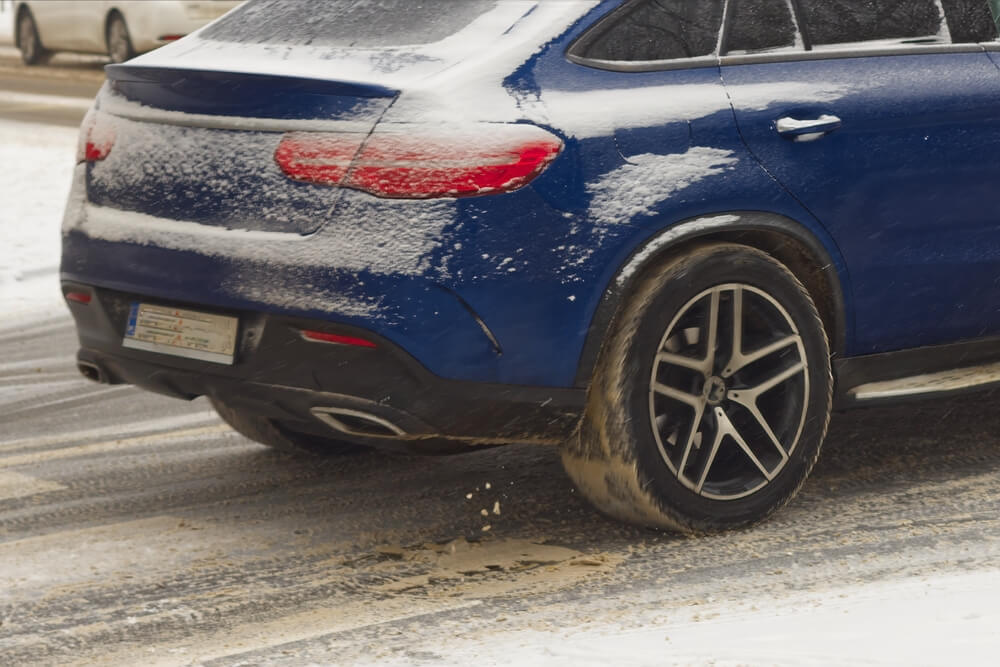The Impact of Holiday Driving on Your Auto Insurance in GA
The holiday season in Georgia is busy in the best way, with weeknight potlucks, weekend road trips, late-night airport runs, and one more store on the way home. It is also a time when smart choices behind the wheel matter more. Traffic thickens, daylight shrinks, and celebrations stack up on the calendar. All of that adds up to higher seasonal driving risks that can affect your safety … and most importantly, your wallet.
This guide helps you navigate holiday driving, understand how claims and tickets can influence auto insurance, and use practical car insurance tips that keep your protection strong and your premiums predictable.
Why Holiday Driving Poses Unique Risks
In Georgia, winter doesn’t exactly pose as much risk when it comes to snow and such, unless you get up there in altitude. But some things you’ll have to worry about are the business, the traffic, and the general rush-and-go-go-go attitude of drivers on the road. Here are 4 winter driving safety hazards to be on the lookout for.
1. Increased Traffic and Congestion
From I-75 and I-85 to the Perimeter and GA 400, the lanes fill up as November rolls into December. Atlanta’s traffic patterns and their influence on auto insurance do matter. Airport pickups stack with last-minute shopping. Weekend kickoffs in Athens or tailgates near Truist Park push thousands of cars onto the same ramps at the same time.
You can lower the temperature of the trip with a little adjustment. Leave ten or 15 minutes earlier than usual. Let navigation guide you around bottlenecks instead of weaving for a faster lane. Hold a longer gap when you know drivers around you are unfamiliar with the area. None of this is complicated; it is simply you choosing a steady pace over constant reaction. That is the core of holiday road safety.
2. Weather Hazards During Winter Months
Georgia does not see months of snow, but winter still changes how your car behaves. Cold rain is common, and wet pavement lengthens stopping distance. Fog sits low along creeks and marshes, especially in the early morning and late evening. In North Georgia, bridges and overpasses can turn slick before the road around them. Black ice is quiet and hard to spot until you are already on it. Check tire pressure as temperatures fall. Replace streaky wipers and refill the washer fluid so you can see when traffic throws spray. Ease off the throttle before a bridge and hold a steady speed across. Use low beams in fog so the light does not bounce back at you. Skip cruise control in heavy rain.
3. Higher Accident Rates on Holidays
Holiday schedules compress miles and errands into tight windows. You finish work, run two stops, get on the interstate after dark, and tell yourself you will push through the last 45 minutes. Fatigue sneaks in. Navigation pings. Your phone lights up. Maybe your car’s underglow lights up too (did you by any chance gift yourself a car modification this holiday season?) A late reaction at highway speed can mean a claim, a deductible, and a note on your record that lingers for years.
4. DUI Rates Are Heightened Around the Holidays
Celebrations spike during the season, and so do holiday DUIs. Alcohol and certain medications reduce reaction time and judgment, exactly when roads are crowded and visibility is low. The safety risks are obvious. The insurance impact is serious. A DUI can lead to license suspension, fines, higher premiums, and sometimes an SR-22 filing requirement. If you are hosting, set the tone. Offer rideshares, designate drivers, and shut down the idea that “it’s only a few miles.”
How Holiday Driving Can Affect Your Auto Insurance
It’s not so much the holidays themselves that affect your premiums, coverage, or anything else about your policy. But they can create the conditions that might lead to an accident or something worse. Here’s what to keep in mind.
Premium Increases After Claims
Insurers price policies based on how much risk you represent, and your recent history is a big part of that. A single claim does not define you, but it does get noticed. Collision claims for at-fault accidents often carry a stronger rating impact than comprehensive claims for weather, theft, vandalism, falling objects, or animal strikes. Some carriers offer accident forgiveness for a first minor at-fault incident. Others do not. Deductible choices matter too: a higher deductible can keep premiums in check, but it also raises your out-of-pocket cost if bad luck finds you during holiday driving.
How Accidents Can Impact Your Record
Tickets and at-fault crashes usually live on your motor vehicle record for years. Stack a few in a short window, and you can move into a higher rating tier, which raises your premium and can limit access to preferred pricing. Serious violations like DUI have a longer tail. You may face higher liability requirements and special filings, and you will almost certainly feel it in your rate.

Tips for Staying Safe and Maintaining Coverage
So when it comes to staying safe during the holiday months, the key thing to keep in mind here is how you conduct yourself. There’s a term called “defensive driving,” which demonstrates the idea that while you can’t guess what others will do exactly, you can drive in such a way to avoid problems. Additionally, make sure you take a look at your coverage as the winter months roll in.
Defensive Driving Strategies
Defensive driving is not a lecture. It is a rhythm. You give yourself a little more space so brake lights do not surprise you. You look farther down the lane, so you notice the slowing truck before the car ahead of you slams the brakes. You set your route and playlist before you put the car in gear. You keep both hands available to steer, and you let a text wait until the next exit. You turn on your headlights in the rain at noon, not only at night. You accept that getting there five minutes later is better than getting there with a claim on your record. These are the boring, reliable choices that define safe driving during holidays.
Keeping Your Insurance Information Handy
If something happens, your organization turns a bad moment into a manageable one. Keep your insurance ID card in the glove box and a digital copy on your phone. Save your carrier’s claims and roadside numbers in your contacts so you are not hunting for them on the shoulder in the rain. After a collision, move to a safe place, check for injuries, and call 911 if needed. Good documentation shortens repair time and helps control costs.
Reviewing Coverage Before the Holidays
A quick coverage check in late fall pays for itself, and understanding the different types of car insurance coverage makes a big difference. Confirm liability limits that actually protect your assets. If your vehicle is newer or financed, make sure collision is active and that the deductible fits your budget. Keep comprehensive coverage for storms, falling tree limbs, theft, and animal strikes, which are common winter losses in Georgia. Add or review uninsured/underinsured motorist so injuries are not your burden if the other driver’s coverage falls short. Consider medical payments (MedPay) to help with medical bills regardless of fault.
Keep Your Coverage Holiday-Ready with Velox Insurance
You should feel festive on the road, not anxious. At Velox, we can help you dial in the right deductibles, add roadside benefits before a road trip, and search for discounts that reward your good habits. You get local guidance from agents who drive the same routes you do, plus access to carriers and options that match your budget. Get a quote online, give us a call at (855) 468-3569, or visit one of our Georgia offices!
FAQs
Are there specific auto insurance discounts for safe holiday driving?
There is not usually a discount with “holiday driving” in the name, but the same habits you practice in December help you qualify for savings all year. Safe-driver and claims-free discounts are common, as are multi-car and bundling options. Some carriers offer telematics programs that reward gentle braking, consistent speeds, and limited late-night driving. Ask a Velox agent which choices fit your routes and routine.
What should I do if I’m involved in an accident during the holidays?
Safety comes first. Move to a secure spot if you can, and call 911 for injuries. Exchange information, photograph damage and the scene, and note any factors like wet pavement or missing signage. Contact your carrier to open a claim and save the claim number to your phone. If your policy includes rental reimbursement or roadside assistance, your adjuster can walk you through how to use those benefits so your plans stay intact.
Does weather-related damage count as an auto insurance claim during the holidays?
Yes. Weather and other non-collision losses like hail, falling limbs, flood, theft, vandalism, or an animal strike typically fall under comprehensive coverage, subject to your deductible. These claims are usually treated differently in rating than at-fault collisions, but details vary by carrier. If you are unsure whether to file, a quick conversation with Velox can help you weigh the cost and impact.
Can increased travel during the holidays impact my insurance risk score?
More miles mean more problems, at least when it comes to the way your underwriter is thinking. If you use a telematics program, longer nighttime driving or frequent hard braking can show up in your score. You can balance that out with smoother inputs, earlier braking in traffic, and routes that avoid known choke points. These insurance coverage tips double as everyday accident prevention and help keep your rate stable.



